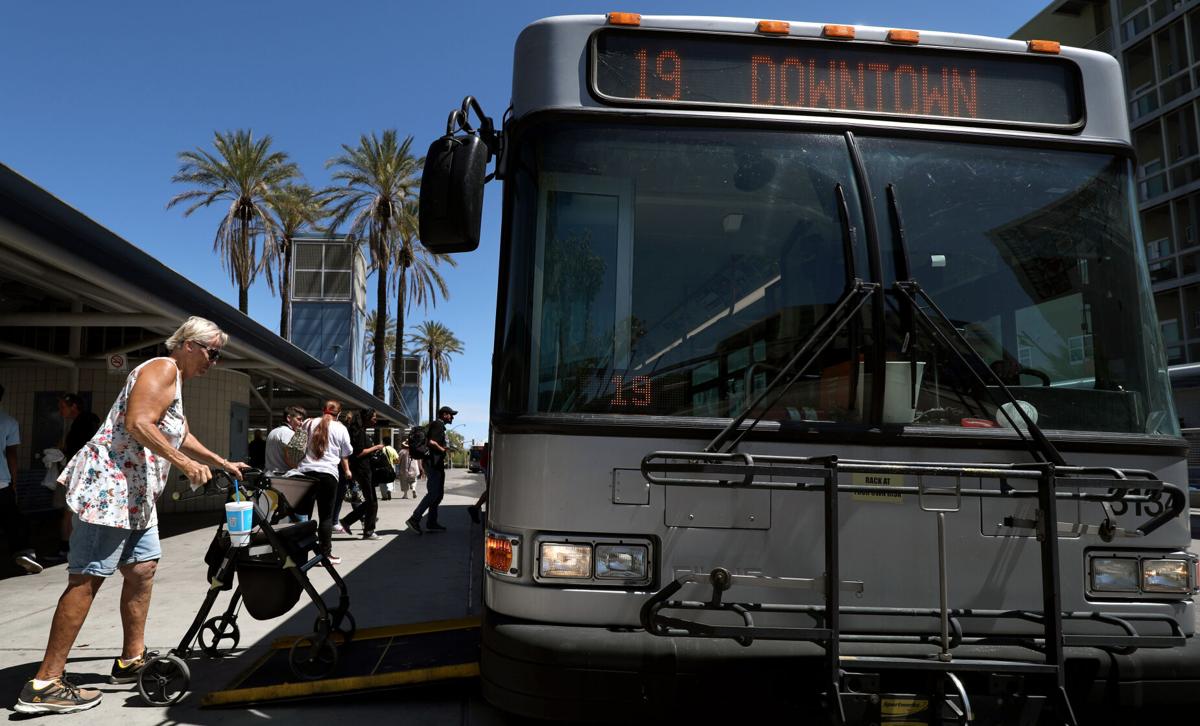Tucson will soon be able to replace all of its diesel-powered buses with low-emission vehicles after receiving more than $21 million from the Federal Transit Administration Monday, a move the city says will reduce carbon dioxide emissions by 2,480 metric tons.
Tucson received nearly $21.5 million from the FTA’s Low- or No-Emission Grant Program to buy 39 compressed natural gas-fueled buses, eliminating the remaining diesel buses on its fleet.
Compressed natural gas, or CNG, is a type of fuel produced by compressing gas to less than 1% of its standard volume and is mainly composed of methane. The gas powers many water heaters, stoves and furnaces and emits fewer greenhouse gases than traditional fuel, according to the Environmental Protection Agency.
The FTA announced the recipients of $1.7 billion worth of nationwide projects on Monday to replace high-emissions buses with options carrying lower carbon footprints. Arizona received $51 million of the funding.
Half of the buses supported by the federal grant funding across the country will be zero-emission models, according to the FTA. CNG-powered vehicles still create emissions, although significantly less than diesel-powered engines.
While the city has been intent on electrification efforts, Transportation and Mobility Director Sam Credio said purchasing CNG buses is a way to quickly lower the city’s fleet emissions at a much lower cost than electric vehicles, which can be around double the cost of CNG vehicles.
“Our goal with this program was speed. How quickly can we eliminate all of our diesel buses from the bus fleet? And by going with CNG, it allowed us to get there much quicker,” he said.
Sun Tran, the city’s public transit system, already has 106 CNG buses on its fleet, Credio said, making the use of the lower-emissions system “a tried and true technology.”
Tucson submitted a request for $27 million in grant funding to replace its aging diesel-powered buses with CNG buses and will provide $5.4 million of its own money in addition to the grant.
“I promised Tucsonans that I’d take clear action to create a clean and sustainable city, and with the support of our federal partners, I am doing just that,” Mayor Regina Romero said in a news release. “Decarbonizing the transit system will be a powerful victory for our community, bringing cleaner air and a brighter future for all Tucsonans.”





